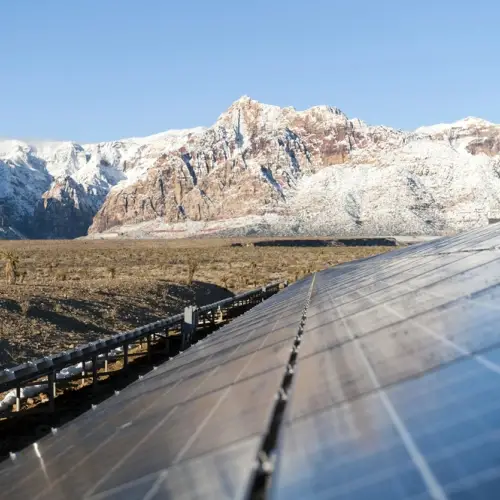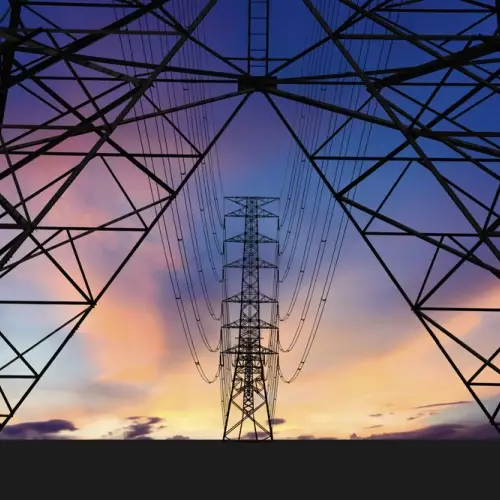
Solar energy is one of the most promising renewable energy sources, widely promoted for its potential to reduce dependence on fossil fuels and mitigate climate change.
However, despite its undeniable advantages, there are also several arguments against its widespread implementation and use.
1. Dependence on solar radiation
 One of the main disadvantages of solar energy is its direct dependence on weather conditions and solar radiation. Generating electricity using solar panels is only effective when sufficient sunlight is available.
One of the main disadvantages of solar energy is its direct dependence on weather conditions and solar radiation. Generating electricity using solar panels is only effective when sufficient sunlight is available.
In regions with cloudy or rainy climates, the efficiency of solar panels decreases considerably, reducing their ability to generate electricity continuously. Furthermore, solar panels do not generate energy at night, making energy storage systems or supplementary energy sources necessary.
This intermittency factor translates into a significant limitation for the implementation of solar energy in areas that do not have constant solar radiation or that experience long periods of darkness, such as polar regions.
In these cases, solar systems are forced to rely on other energy sources or alternative storage systems.
2. High initial cost
Although the cost of solar panels has decreased considerably in recent years, the initial investment required to install a solar system remains high. This includes the costs of solar panels, inverters, batteries, and other components necessary for the efficient operation of a solar system.
Furthermore, there is the counterargument that installing these systems requires specialized labor, which also increases the overall costs.
For many families and businesses, this initial cost remains a significant barrier to adopting solar energy. While government incentives and subsidies exist in certain countries that can help reduce this expense, not all countries or regions have adequate policies to facilitate the widespread deployment of solar panels.
This means that, despite the long-term benefits, the initial cost remains a significant drawback.
3. Low conversion efficiency
The efficiency of solar panels, although improved with technological advances, remains relatively low compared to other energy sources.
Current solar panels convert only a fraction of sunlight into usable electricity, with efficiency typically ranging between 15% and 22%. These figures indicate that a large amount of the solar energy falling on the panels is not converted into electricity, limiting the amount of energy that can be generated in a given area.
While advances in solar cell technology, such as perovskite solar cells and concentrating solar cells, hold promise for increased efficiency, these technologies have not yet been widely deployed or considered viable solutions for most residential or commercial applications.
4. Use of rare and toxic materials
Solar panels are mostly made from materials like silicon, which is abundantly available, but other rarer and more expensive materials, such as indium, gallium, arsenic, and cadmium, are also used.
The extraction and processing of these materials are disadvantageous compared to other alternatives because they have a significant environmental impact. These processes require a large amount of natural resources and energy, and in some cases, they can generate toxic waste.
Furthermore, the manufacturing and recycling of photovoltaic panels can release hazardous chemicals that, if not handled properly, can pollute the environment.
Although the solar industry has made efforts to improve the sustainability of panels and reduce the environmental impact of their manufacturing, the use of rare and toxic materials remains a concern.
5. Recycling problems
Although solar panels are designed to last 25 to 30 years, once they reach the end of their useful life, recycling them can be a significant inconvenience.
Solar modules contain materials that can be difficult to recycle efficiently, such as heavy metals and other electronic components. If not managed properly, discarded solar panels can become an environmental problem, as they can release toxic substances into landfills.
Photoelectric panel recycling is still a developing industry, and although recycling programs exist in some countries, it is not a universal practice. Furthermore, the costs associated with recycling these panels can be high, which could discourage businesses and consumers from properly recycling them at the end of their useful life.
6. Space required for installation
 The amount of energy that can be generated with solar panels depends on the space available for their installation.
The amount of energy that can be generated with solar panels depends on the space available for their installation.
To generate significant amounts of electricity, a large number of solar panels must be installed, which requires a considerable amount of space. This factor is especially problematic in urban areas where space is limited, and installing rooftop photovoltaic systems is not always feasible due to space limitations or unfavorable building orientation.
In rural or sparsely populated areas, installing large solar farms may be easier, but this involves the use of vast tracts of land, which can conflict with land use for agriculture or other purposes.
7. Environmental impact of solar panel manufacturing
The manufacturing of photovoltaic cells is not without its environmental impacts. Although solar energy is a clean and renewable source of electricity, the solar panel manufacturing process involves the use of large amounts of energy and water, in addition to generating greenhouse gas emissions and industrial waste.
The mining, refining, and production processes of materials such as silicon and cadmium generate carbon footprints, which partially reduce the environmental benefits of solar energy.
Furthermore, solar panel factories in some emerging countries may not be as regulated in terms of environmental protection, increasing the possibility that production processes may have a negative impact on the local environment.
8. Energy storage problems
Solar electricity storage is another major argument against it. Since solar energy production depends on solar radiation, and electricity demand is typically higher at night or during bad weather, energy storage systems such as batteries have become a necessity for many solar installations.
However, current batteries, although increasingly efficient, remain expensive and have limitations in terms of battery life and storage capacity.
Lithium-ion batteries, which are commonly used in residential solar systems, have a limited lifespan and can lose capacity over time. Furthermore, battery production also has its own environmental impact, as it involves the extraction of minerals such as lithium and cobalt, whose mining can cause ecological and social damage in the regions where they are extracted.
9. Difficulties with integration into the electrical grid
 Integrating large amounts of solar-powered electricity into the distribution grid can present problems.
Integrating large amounts of solar-powered electricity into the distribution grid can present problems.
The intermittency of solar radiation means that electricity production can fluctuate throughout the day, which can cause instability in the electrical grid if these variations are not properly managed. Energy storage systems and grid management technologies are essential for balancing supply and demand, but these solutions require significant investments and advanced infrastructure.
In regions where the electrical grid infrastructure is old or unprepared to handle large amounts of renewable energy, large-scale solar power adoption can be especially challenging.